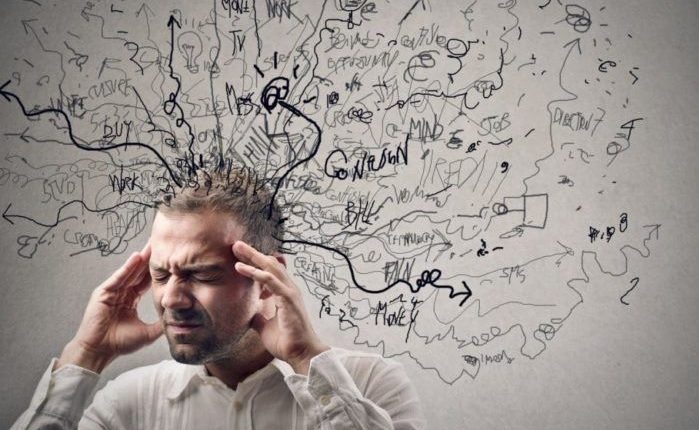
Rescuing a patient with mental health problems: the ALGEE protocol
ALGEE is the acronym for a protocol that is widespread throughout the world and is used by rescuers for patients with mental health problems
How do we react when faced with a mental health crisis?
Approaching a person with a mental illness requires a step-by-step process to ensure that they receive help appropriate to their current condition.
We use an acronym called ALGEE to help people understand the process of dealing with a person struggling with their mental health.
When we train mental health first aiders, we introduce this term at the beginning because it is a crucial element in providing help to people with symptoms that cannot be easily recognised or determined.
ALGEE is the counterpart of ABCDE in first aid: both can save a life
The acronym ALGEE can be drawn as a circle, and the point is?
When approaching someone, you can start with any letter, depending on the situation.
THE ‘A’ OF ALGEE – EVALUATE FOR RISK OF SUICIDE OR HARM
Before approaching someone, have you studied their behaviour?
Do they behave differently?
Do they stiffen when you talk about a certain topic?
As a mental health first responder, it is your job to identify any abnormalities and act accordingly.
By assessing the person’s severity or condition, you can determine what action to take accordingly and understand how to deal with their reactions.
Every person and every mental health problem is different and therefore it may be difficult to identify the problem at that time, but are there any physical signs that pose a potential threat to the patient or to yourself?
If you notice self-harm, distress or anything unusual, then the person in question may be in a crisis situation and require immediate help.
If the individual shows signs of distress, then we can take the next step.
THE ‘L’ OF ALGEE – LISTEN without judging
This is probably one of the most important things to remember, as people with little experience often overlook it.
It is important to listen, but it is even more important to listen without judging the speaker.
If someone is experiencing a depressive or anxiety episode, the best thing to do is to offer open arms.
In most cases, people struggling with their mental health do not want to talk openly about their feelings, but by approaching them during a quiet period, they are more likely to do so.
Most people want empathy rather than a response, so don’t worry if you don’t know what to say: listening and showing understanding is all a person might need to get through their bad day.
Being judgmental or disrespectful of a person’s opinions or problems can make things worse.
If you want to help someone suffering from a mental health problem, you will need to adopt patience and understanding.
G – Giving information and encouragement
It can be difficult to convince someone to act on their mental health, even with encouragement.
However, if you are talking to a person who is suffering, your encouragement will be the best thing.
People often feel ‘alone’ when they suffer from depression, anxiety or PTSD, so knowing they have someone beside them is all they need.
E – ENCOURAGE professional help
This too can be difficult, but it is the right thing to do for those who see themselves suffering.
The sooner they can face their fears and seek help, the sooner they will recover.
As an MFA, it is your job to help them to the best of your ability and to encourage professional counselling.
You can only help them to a certain extent, and you must convince them to seek the help they need.
Depression and anxiety require intense encouragement, especially since many people do not want to appear ‘annoying’.
The best thing to do in this case is to discuss the options available and how to help them achieve them.
All it takes is a little encouragement and people will be more inclined to seek help than they were before.
However, to improve your ability to persuade, make sure you have a rapport with the individual or establish a relationship of trust, that way they are more likely to listen to you.
E – Encourage self-help or other support
In this case, it can be helpful to talk to the person about taking part in activities or hobbies that can distract them from their emotions.
By providing them with a way to maintain their mental health, they can help themselves on the road to recovery.
Activities include exercise, socialising, reading, gardening and other pastimes.
Do you think you will remember ALGEE?
In conclusion, ALGEE is an acronym for mental health first aid that everyone should remember.
Just like physical first aid, poor mental health requires support and help to recover.
Read Also:
Emergency Live Even More…Live: Download The New Free App Of Your Newspaper For IOS And Android
Why Become A Mental Health First Aider: Discover This Figure From The Anglo-Saxon World
Anxiety: A Feeling Of Nervousness, Worry Or Restlessness
Firefighters / Pyromania And Obsession With Fire: Profile And Diagnosis Of Those With This Disorder
Intermittent Explosive Disorder (IED): What It Is And How To Treat It
Management Of Mental Disorders In Italy: What Are ASOs And TSOs, And How Do Responders Act?
ALGEE: Discovering Mental Health First Aid Together



